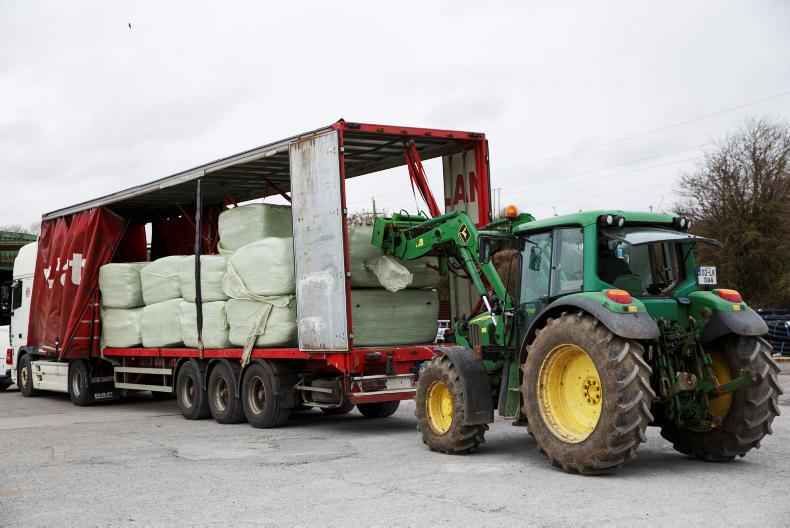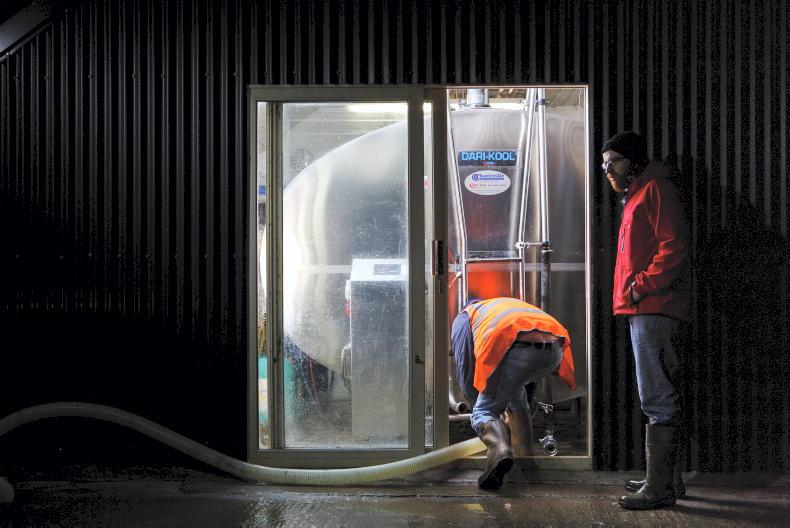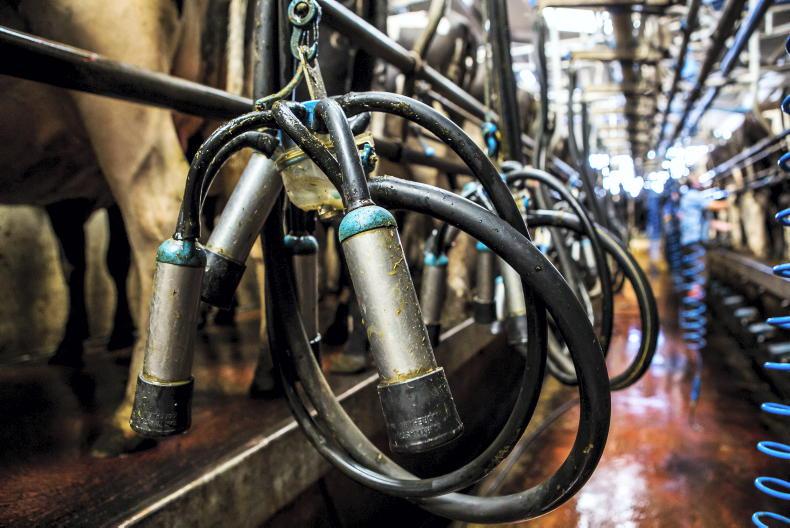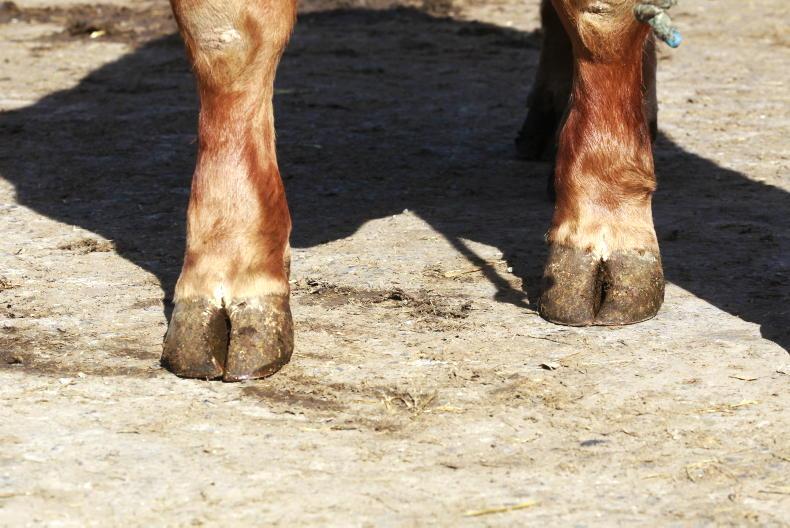Over 20,000t of fodder is expected to land on our shores in the next few weeks in order to ease the pressure faced by Irish farmers. Minister for Agriculture Michael Creed has made €1.5m available for the Fodder Support Scheme. But how can farmers access this?
The key message is to seek assistance from your local co-op or adviser as soon as possible to avail of the fodder imports. Fodder support has been extended to all co-ops and not just dairy co-ops, as confirmed by Minister Creed last Friday.
With up to 10-12 loads of silage touching down in Ireland every day, it is important to get your application in under the fodder scheme. Farmers are encouraged to contact their local Teagasc office, co-op or mart to organise to be placed on the fodder register in order to source feed.
How to register
Applications for the fodder scheme must be in between 5 April and 30 April. Farmers are advised to record all transactions and keep all paperwork as a record for future reference for the scheme. A limit of €15,000 has been placed on the allowable aid received by farmers over a three-year period. What follows is a guideline on what forms and applications must be filled out for it to be valid.
Farmer
The farmer pays the participating co-op/importer for the forage (excluding the transport cost contribution made by the Department) in full. They must also supply:
Their name and herd number.Date of sale of forage to farmer.The number, size and type of bales that each farmer bought from the participating co-op/importer.Co-op
Co-ops must complete an application form for importing fodder. Imports will be supported by the Department from 5 April to 30 April 2018.
Completed forms must be emailed to fodderimportmeasure@agriculture.gov.ie or posted to Fodder Import Measure, Department of Agriculture, Food and the Marine, Government Offices Abbeyleix Road, Portlaoise, Co Laois.
Sale declaration
A sale declaration form must be completed by both the farmer and co-op/importer once a sale has been made.
Copies of the form must be maintained by the co-op/importer for at least 12 months. Details of the quantity and type of fodder must be included on the form.
All forms can be attained from the Department of Agriculture or your local Teagsac adviser.
Teagasc is making fodder clinics available for farmers to attend to discuss any problems they experienced during the harsh spring. Farmers can contact Teagasc over the weekend at 087-797 1377 with any queries or questions with regard to sourcing fodder.
Incorporating the fodder
Upon receiving fodder, farmers should assess the quality they are receiving. Dry matter content has a huge variance between the different types of fodder from the high percentage alfalfa to a lower percentage silage.
Recent reports suggest farmers are receiving small amounts of fodder as co-ops attempt to ration the supplies.
Glanbia’s announcement of a €50/t discount on all ruminant feed and milk replacer for April is welcome news following March milk price cuts of 3c/litre.
However, it is important to note that the alfalfa that is being brought in will still need supplementation of silage and concentrates.
Similarly, Dairygold’s imports of silage can only act as a buffer to existing silage and concentrates until a time when weather improves and grazing can begin.
Over 20,000t of fodder is expected to land on our shores in the next few weeks in order to ease the pressure faced by Irish farmers. Minister for Agriculture Michael Creed has made €1.5m available for the Fodder Support Scheme. But how can farmers access this?
The key message is to seek assistance from your local co-op or adviser as soon as possible to avail of the fodder imports. Fodder support has been extended to all co-ops and not just dairy co-ops, as confirmed by Minister Creed last Friday.
With up to 10-12 loads of silage touching down in Ireland every day, it is important to get your application in under the fodder scheme. Farmers are encouraged to contact their local Teagasc office, co-op or mart to organise to be placed on the fodder register in order to source feed.
How to register
Applications for the fodder scheme must be in between 5 April and 30 April. Farmers are advised to record all transactions and keep all paperwork as a record for future reference for the scheme. A limit of €15,000 has been placed on the allowable aid received by farmers over a three-year period. What follows is a guideline on what forms and applications must be filled out for it to be valid.
Farmer
The farmer pays the participating co-op/importer for the forage (excluding the transport cost contribution made by the Department) in full. They must also supply:
Their name and herd number.Date of sale of forage to farmer.The number, size and type of bales that each farmer bought from the participating co-op/importer.Co-op
Co-ops must complete an application form for importing fodder. Imports will be supported by the Department from 5 April to 30 April 2018.
Completed forms must be emailed to fodderimportmeasure@agriculture.gov.ie or posted to Fodder Import Measure, Department of Agriculture, Food and the Marine, Government Offices Abbeyleix Road, Portlaoise, Co Laois.
Sale declaration
A sale declaration form must be completed by both the farmer and co-op/importer once a sale has been made.
Copies of the form must be maintained by the co-op/importer for at least 12 months. Details of the quantity and type of fodder must be included on the form.
All forms can be attained from the Department of Agriculture or your local Teagsac adviser.
Teagasc is making fodder clinics available for farmers to attend to discuss any problems they experienced during the harsh spring. Farmers can contact Teagasc over the weekend at 087-797 1377 with any queries or questions with regard to sourcing fodder.
Incorporating the fodder
Upon receiving fodder, farmers should assess the quality they are receiving. Dry matter content has a huge variance between the different types of fodder from the high percentage alfalfa to a lower percentage silage.
Recent reports suggest farmers are receiving small amounts of fodder as co-ops attempt to ration the supplies.
Glanbia’s announcement of a €50/t discount on all ruminant feed and milk replacer for April is welcome news following March milk price cuts of 3c/litre.
However, it is important to note that the alfalfa that is being brought in will still need supplementation of silage and concentrates.
Similarly, Dairygold’s imports of silage can only act as a buffer to existing silage and concentrates until a time when weather improves and grazing can begin.









SHARING OPTIONS